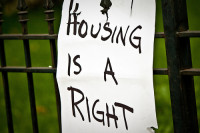Relationships and love seem more difficult in this age of divorce, divisive politics, computer reliance and isolation. At the same time, relationships of all kinds are more important than ever before.
We simply have to learn to live and work together.
I know, I know. It’s hard. These days, more than ever, we disagree, roll our eyes and wonder how anyone can be so stupid as the person we are trying to listen to. And, there are times when we want to shut our doors and never come out. These are challenging times.
I can be less patient when politics are so frightening to me. But I find that many of us can also be more compassionate now. And we all have a great longing to connect and belong. God know, we need each other.
Still, it’s an aggravating time leaving us more easily triggered, agitated, anxious and fidgety. (Interesting that the word “triggered” is so popular now, since our anger explodes like a gun.)
Learning to get along in difficult times is difficult. The crisis of civility, the horror of hatred and prejudice in our midst is in direct contrast to our Valentine’s celebrations. So, what to do with our pent up, emotional hairballs?
Remind ourselves of our intentions. What values matter most? What do we hope to accomplish with our conversations? Sometimes we have to take a “time out” so we won’t yell at people. Creating connection is imperative now. Making this world sane and safe is a job.
To stop hate we have to understand that prejudice and rage come from deep wounds and belief systems. As Rachel Stone wrote “What had to go wrong for my grandfather to internalize the hate he was subjected to as a child… How did his fear – perhaps a result of his being bullied, beat up and called ‘Jew boy’ while growing up in Tennessee – turn into hardened self-loathing and an active hatred of others?”
We internalize what we learn. Stone encourages her sons to have knowledge of, and love for, Ruby Bridges, Rosa Parks and other heroes of the civil rights movement. “I don’t want them to build their lives around anger -and resistance fueled solely by fear begets more fear. Clear-eyed vigilance and action, motivated by joyful resistance, is a possibility for all of us.”
All of life is made up of relationships and the more we build connections, the better. Like ants do. It’s about working together.
Whether we’re discussing politics or personal issues, Rachel Weinstein writes about the three basic styles of relating as: secure, anxious or avoidant. (I wonder what style Congress has?) It’s helpful to know your tendencies and communicate your most sincere needs. Most of us are either overly reactive or hide like a mole in a hole, neither of which is helpful.
These insights helped me understand why, on the dating sites this week I found a lot of men with large dead fish on their laps in photos. Could this be learned behavior?
Social penetration theory is another approach to understanding how our relationships can improve. It explains that going at a certain pace helps relationships grow; not too hurried, not too slow. (Wonder if Trump has read about it?)
But there can also be a de-penetration period in which things fall apart. So we have to find a way to get along.
In the grocery store the other night I suggested the father behind me with three kids go ahead of me. He said, “It’s okay, we’re in no hurry.” Then the guy behind him had a huge cart of stuff so I waved, “go ahead.” He whispered, “I’m okay.” I looked at the long line of people behind me and blurted out, “Everyone seems so patient tonight.” As Marshall Rosenberg says, “There is considerably less violence in cultures where people think in terms of human needs than in cultures where people label one another as ‘good’ or ‘bad.’”
With the world like a puzzle these days with pieces lying all over the rug, who will put them back together? You and me – it’s gotta be.





Be First to Comment